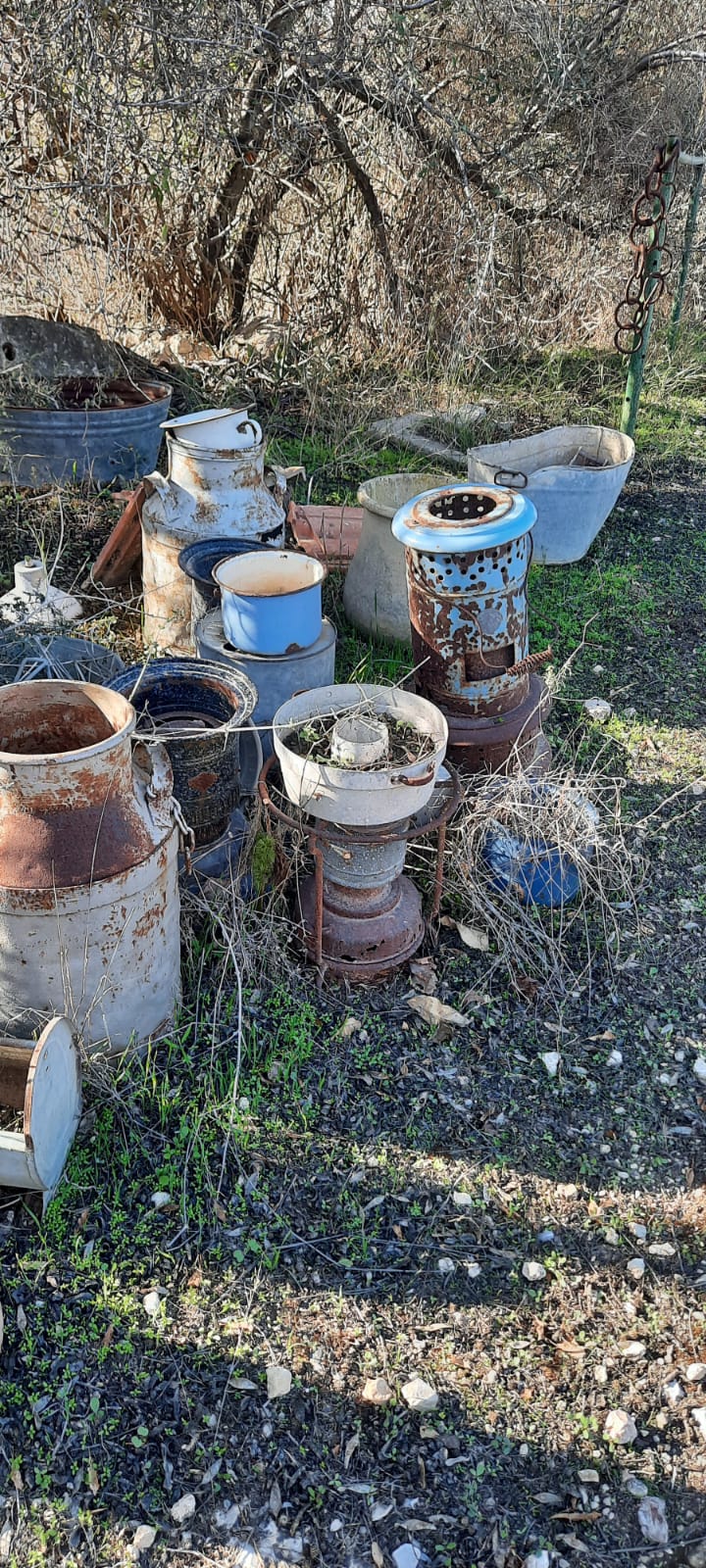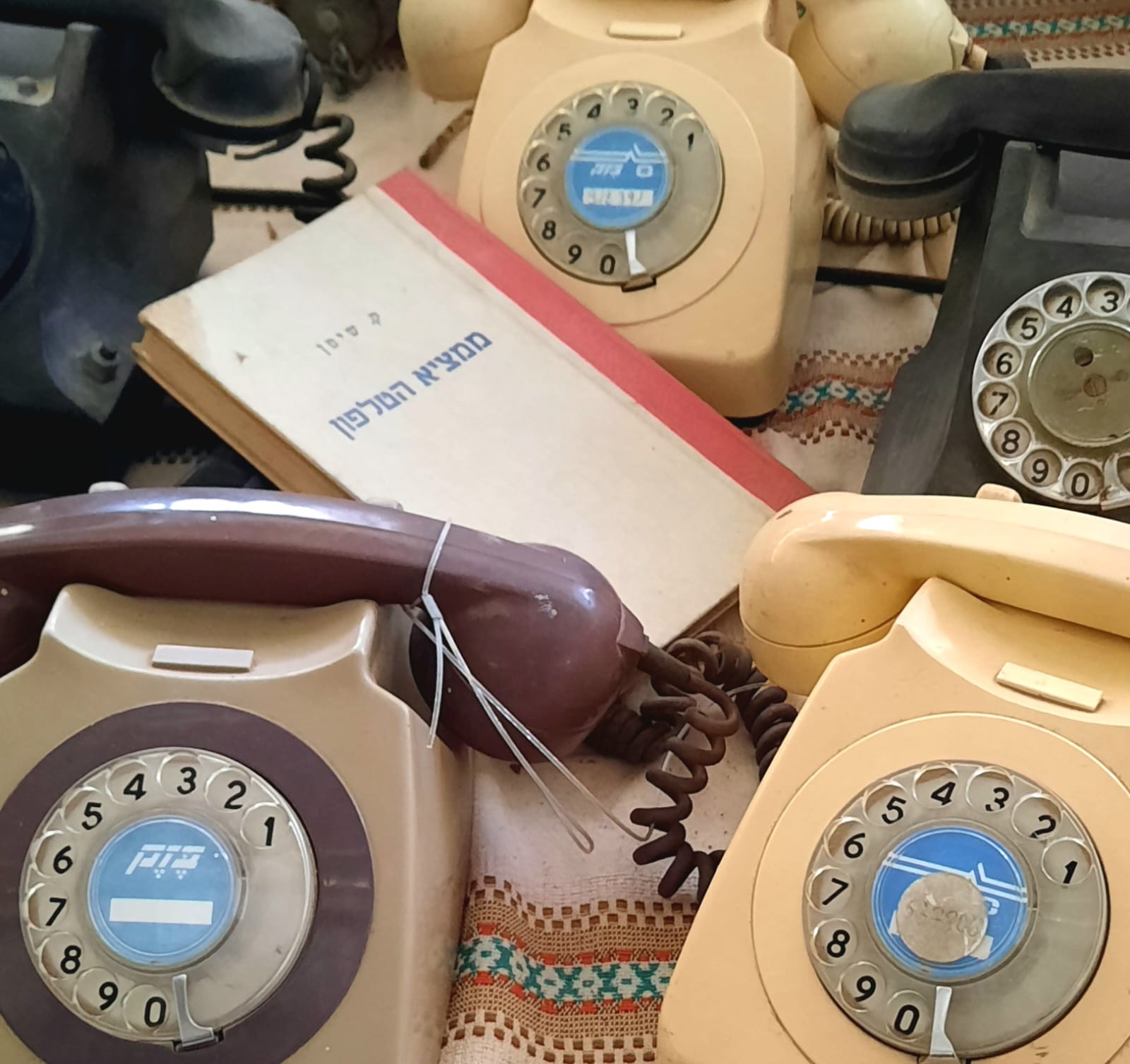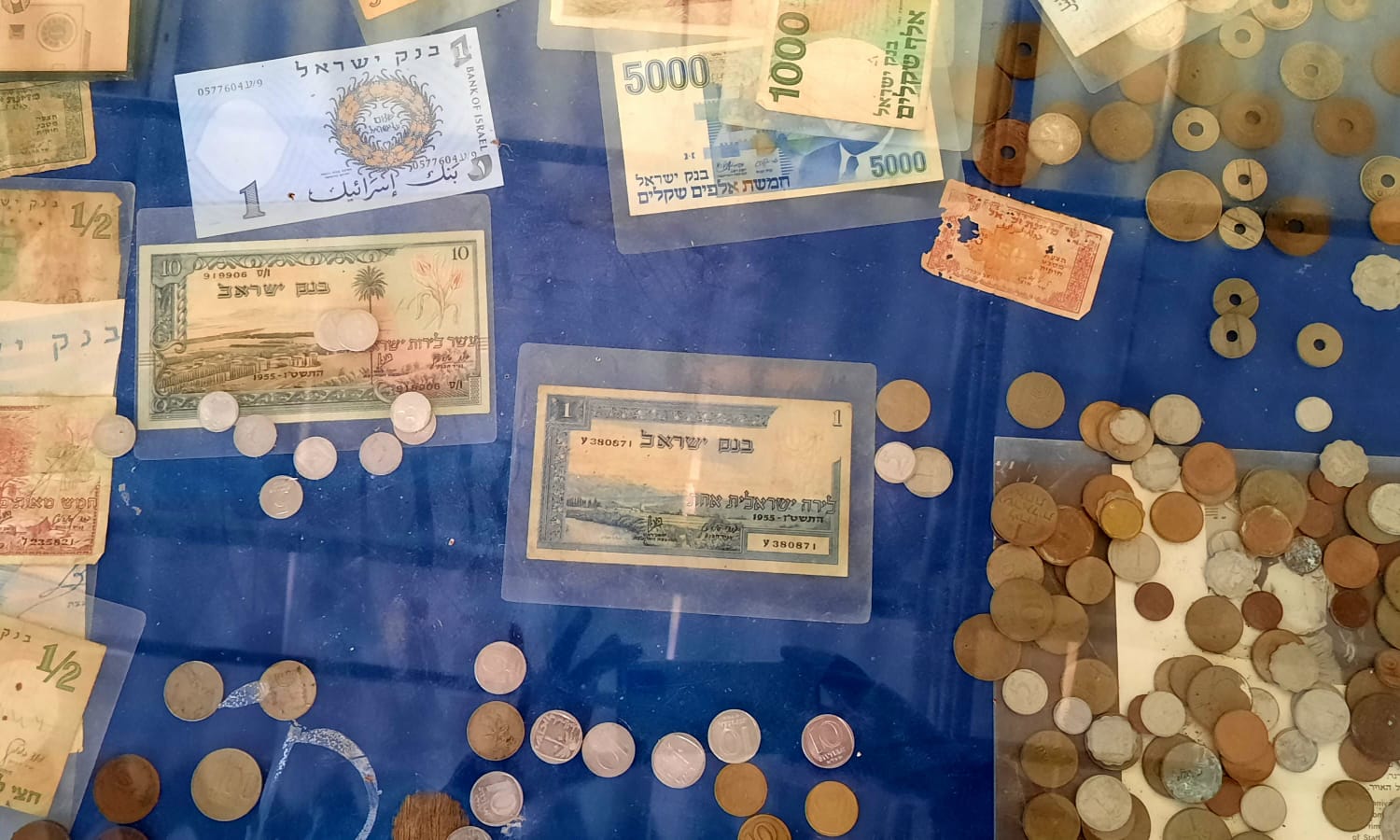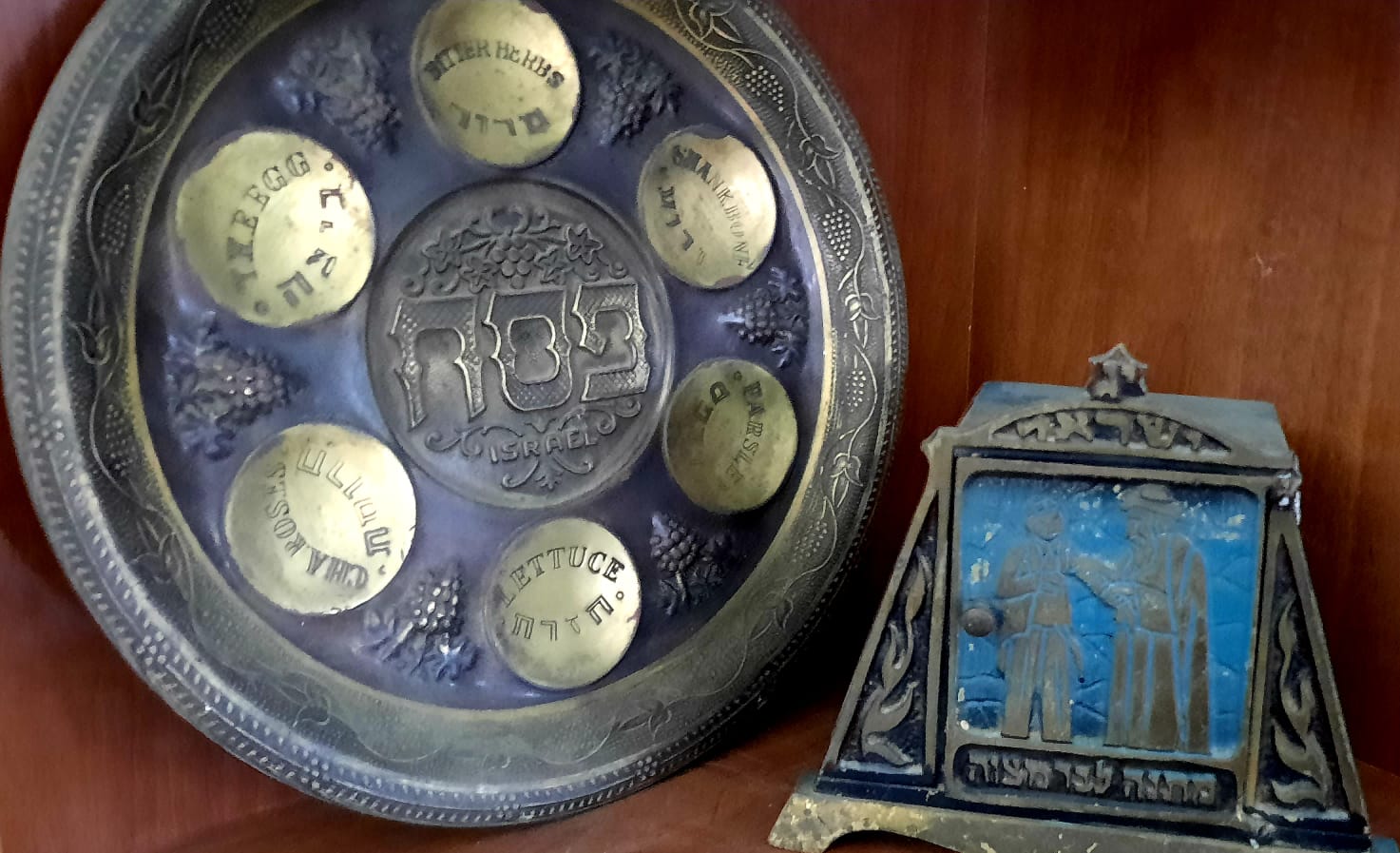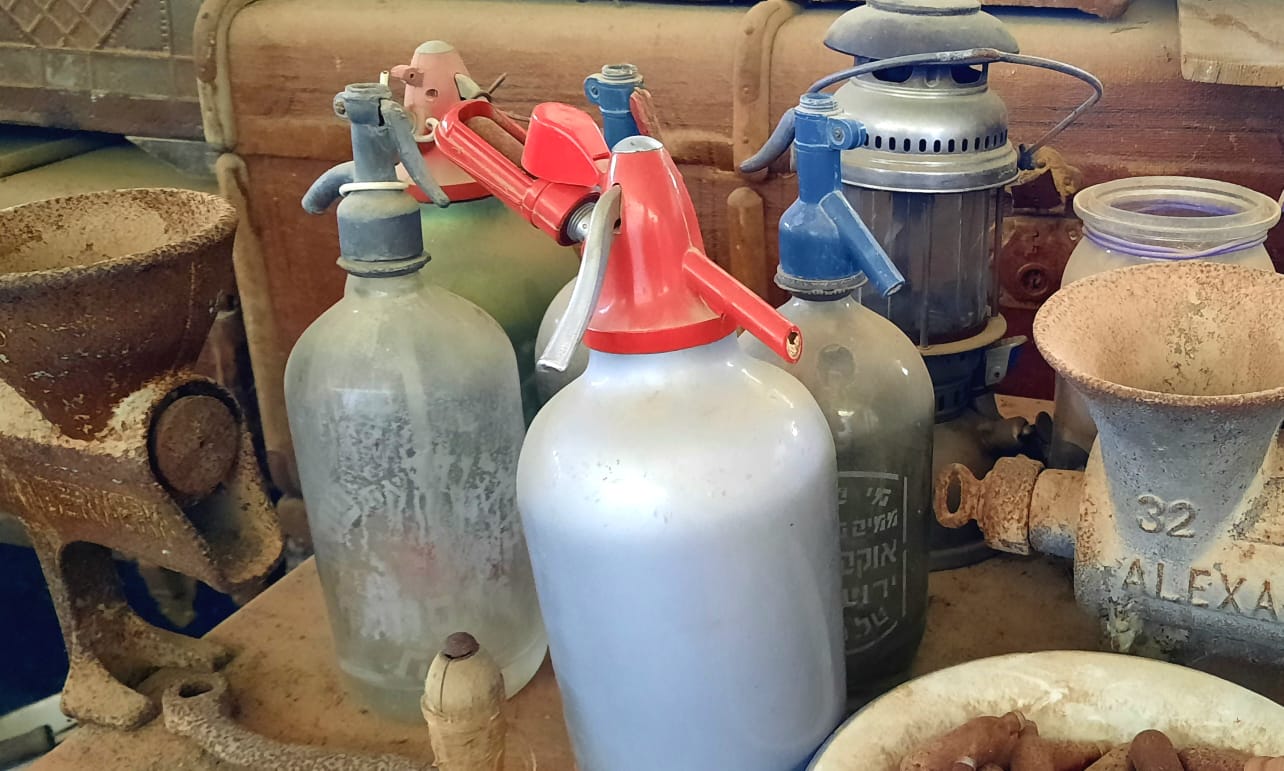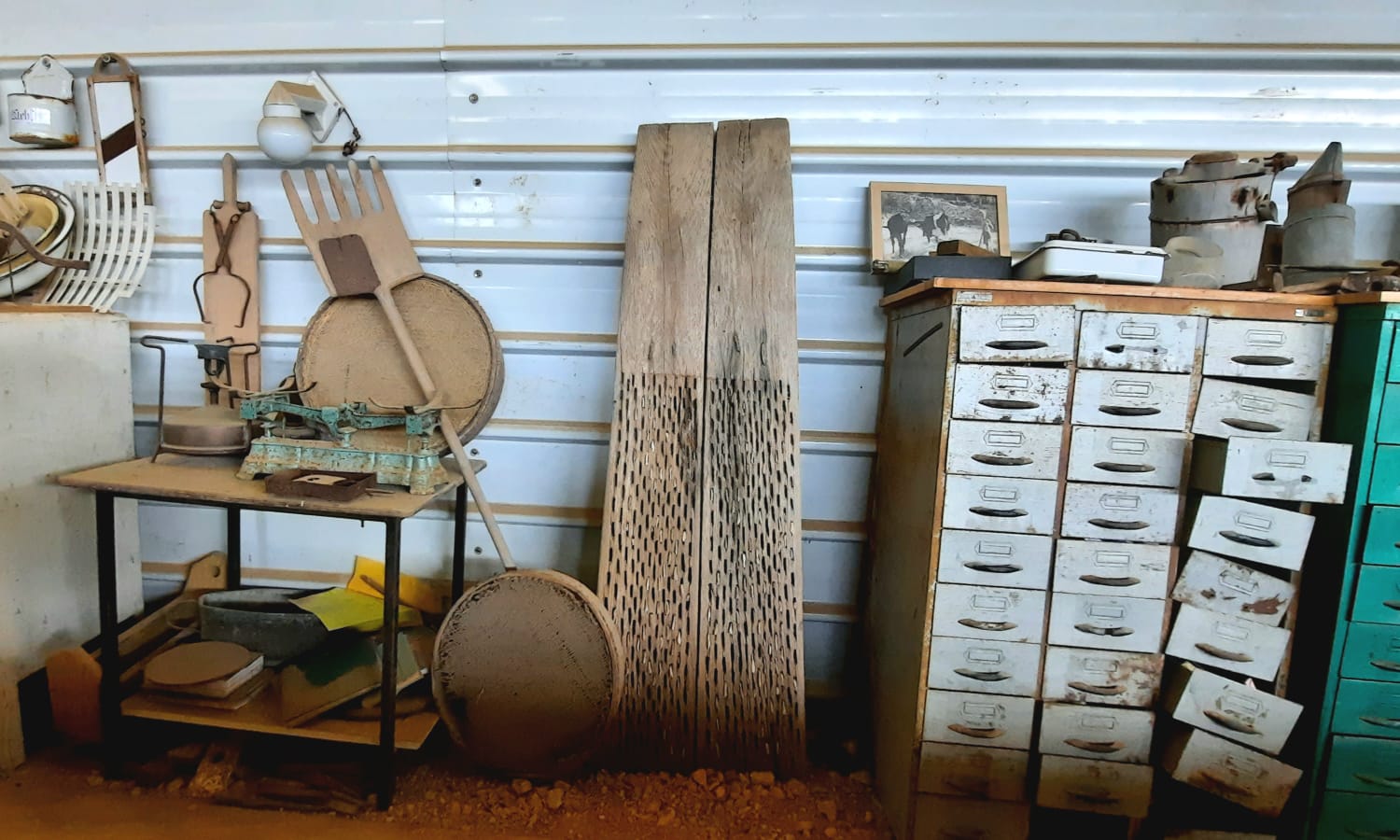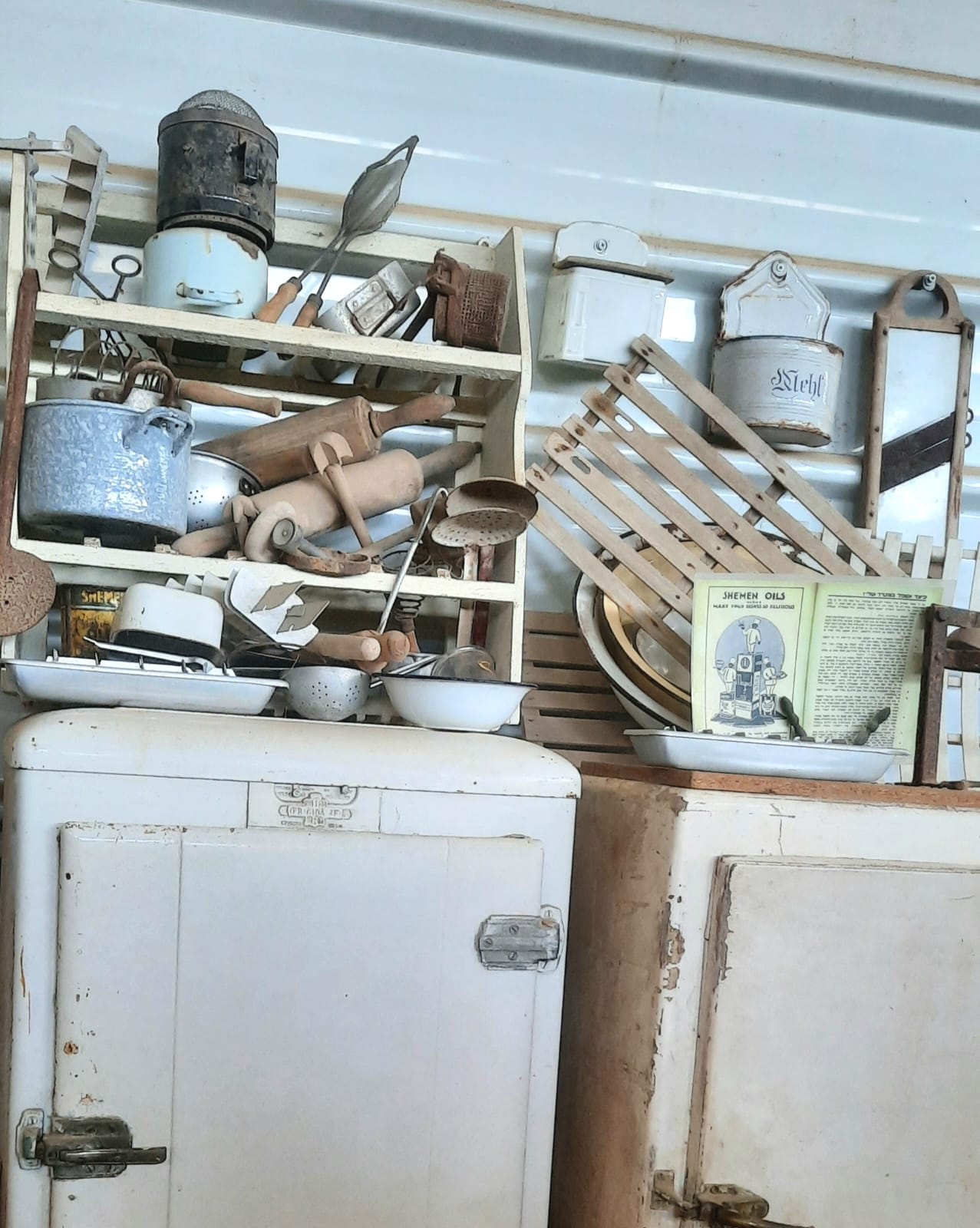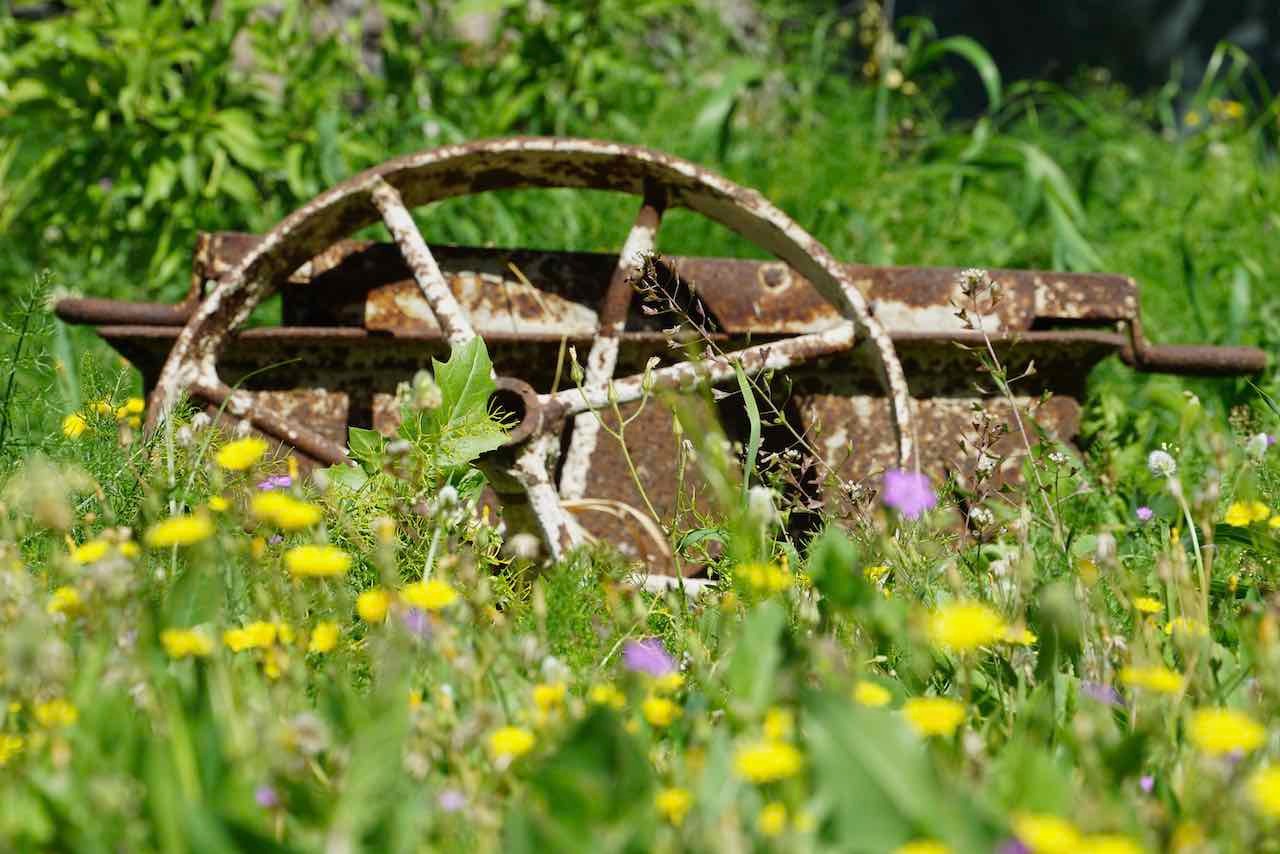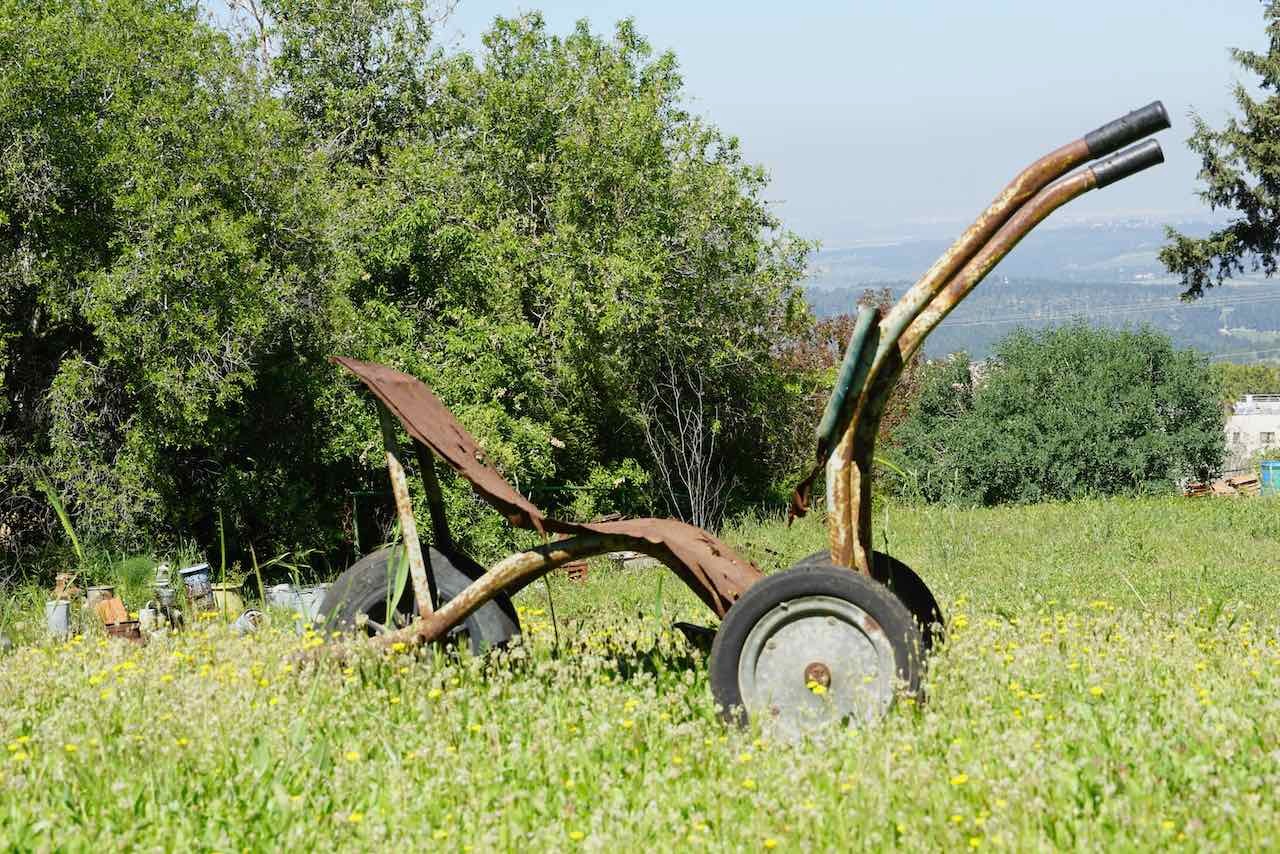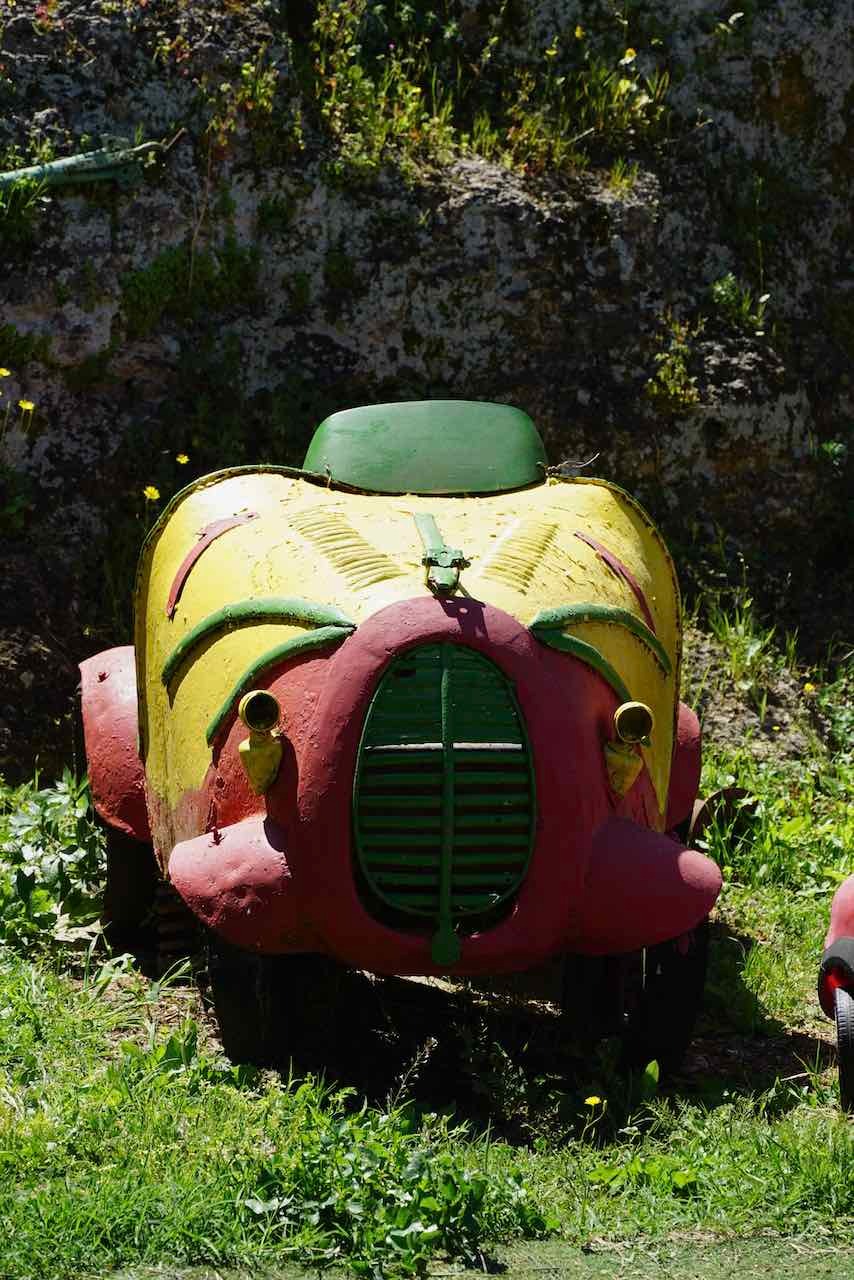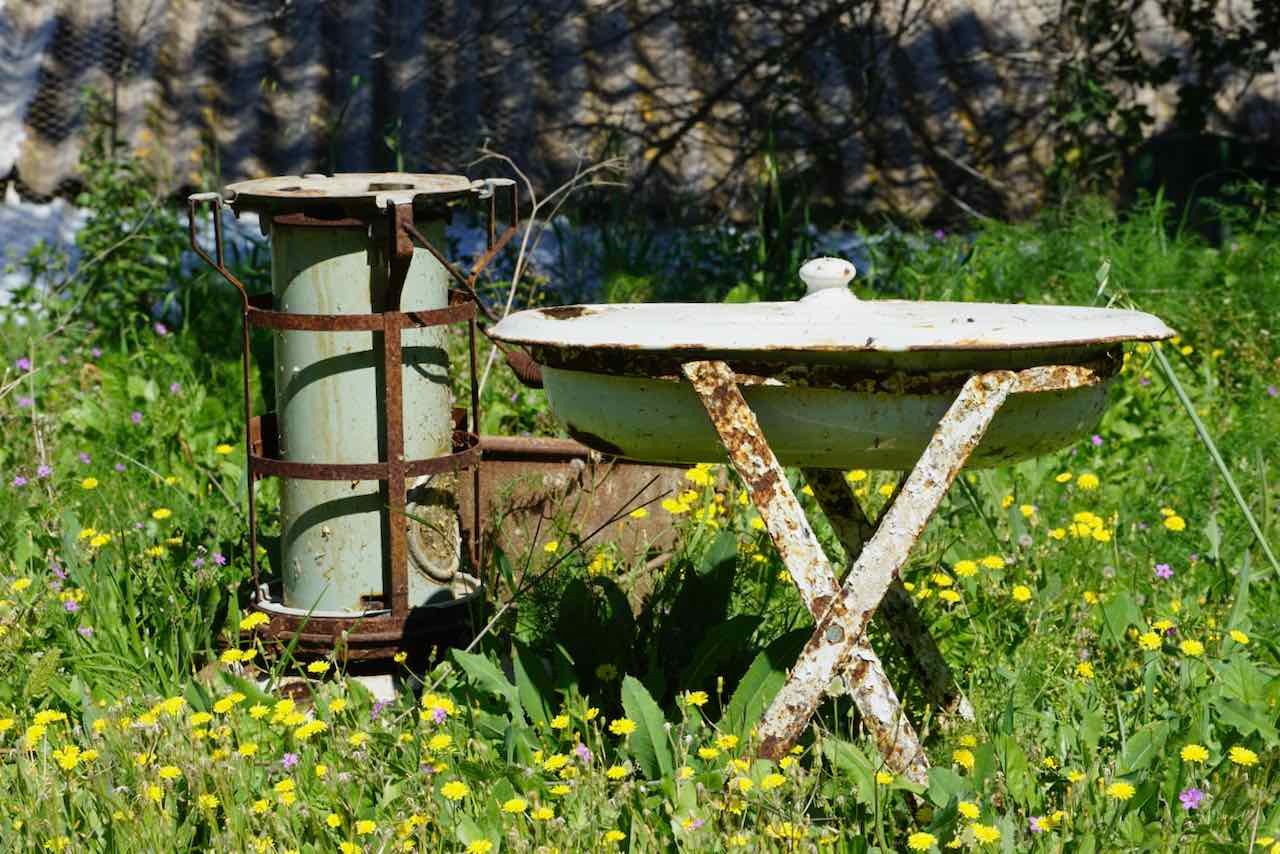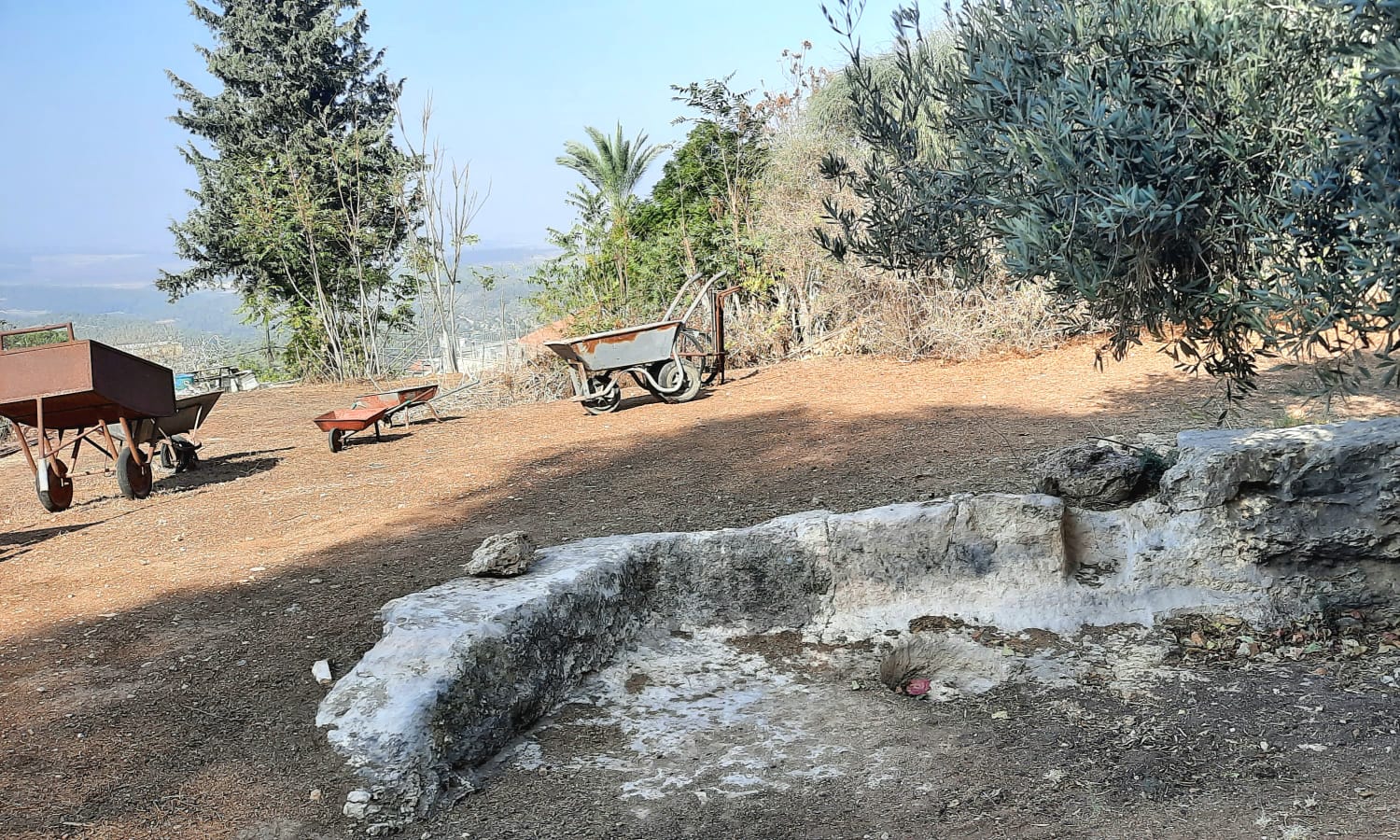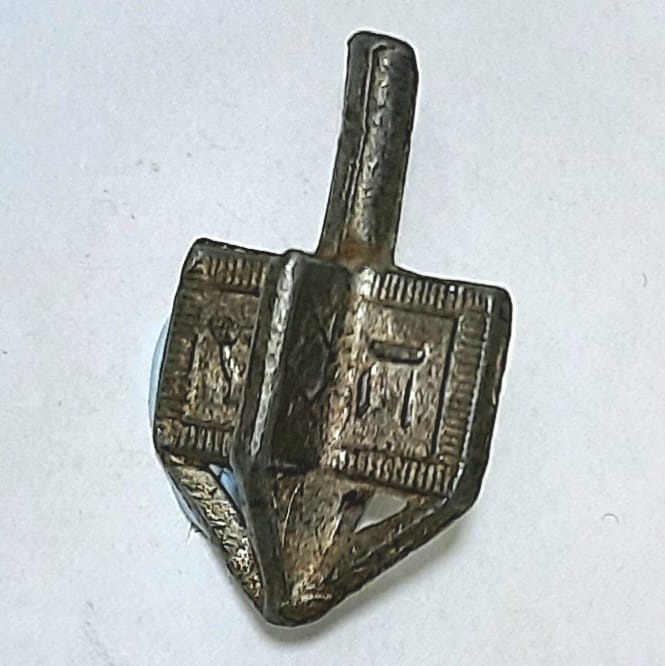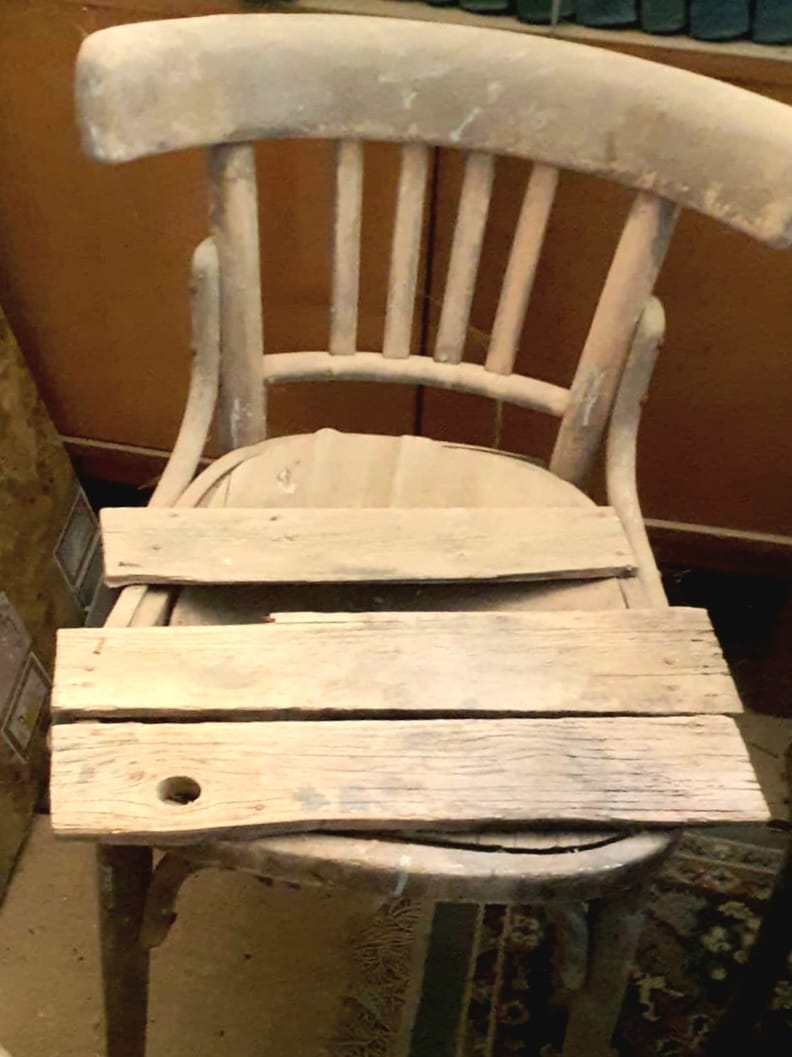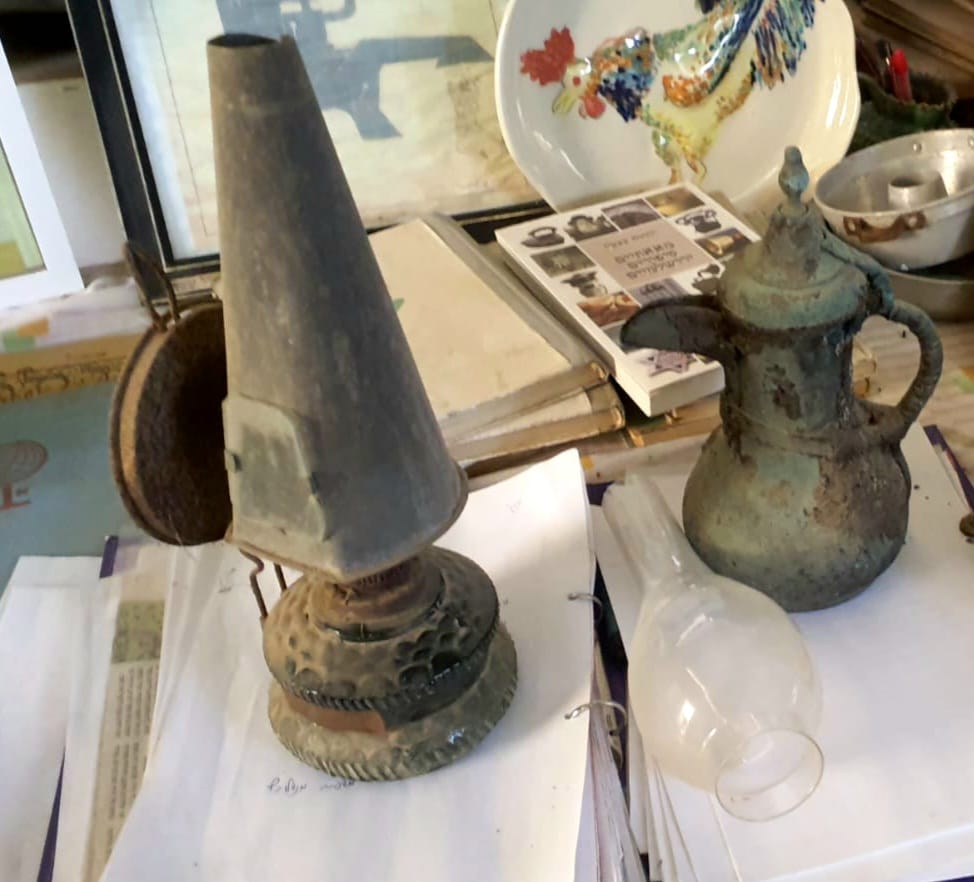The Couple Who Decided to Preserve History: "Our Yard Became a Museum"
Balance scales next to punch cards and tokens; coins from the Hasmonean period next to an armored vehicle from Israel's independence war; books from the early days of the state and even millstones from Nahal Gerar. Jacob and Debbie Kelley opened their home to nostalgia; you're invited to visit.
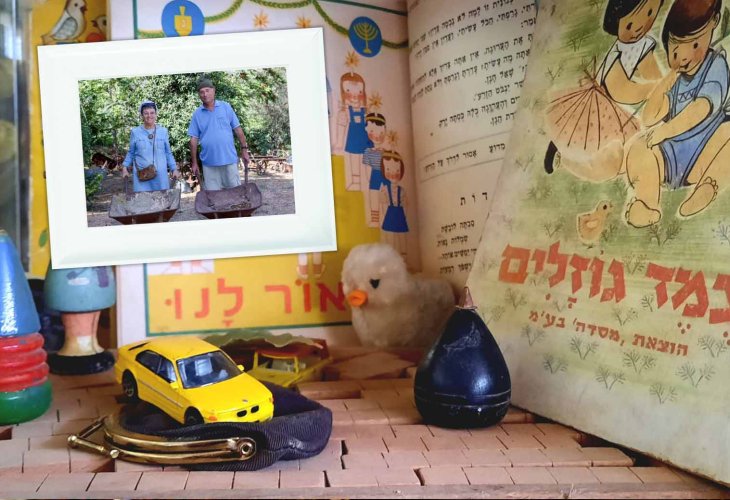 (Pictured: Jacob and Debbie Kelley)
(Pictured: Jacob and Debbie Kelley)The first emotion that floods the heart when visiting 'Grandpa's Shed' is longing. Longing for the past and history. It's difficult to walk among the hundreds of items filling the 'shed', which is essentially a full-fledged museum, without feeling nostalgic for bygone days. But soon after, another emotion takes over – sheer admiration: how did they pull this off?
"They" refers to Jacob and Debbie Kelley, a couple residing in Moshav Beit Meir, who created a heartwarming nostalgic museum in their backyard. The museum is housed in a large structure that once served as a chicken coop, and the exhibits inside take visitors back tens, hundreds, and even thousands of years. Everyday and agricultural artifacts, Judaica, rare books and documents, together tell the story of the history of the Jewish people, and indeed of all of us – from biblical times to today.
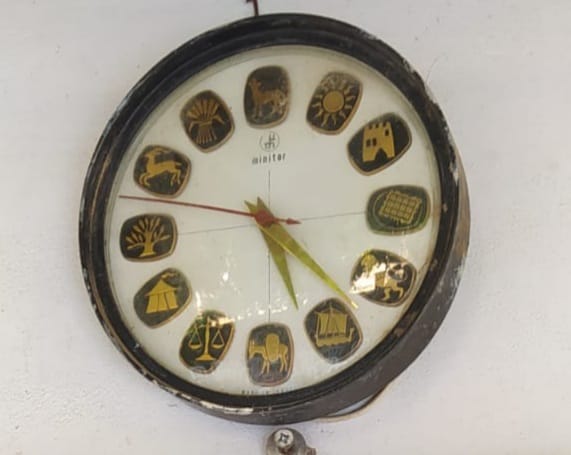
A Wedding That Led to a Museum
This upcoming Chanukah, Jacob and Debbie will mark 25 years since the museum's founding. When asked what inspired them to embark on this project, Debbie shares their story: "It all began when my in-laws couldn't celebrate their wedding as planned. Just days before their wedding, set in Chanukah 1948 in Jerusalem, they met at the central bus station in Tel Aviv to board a bus to the holy city. But what a disappointment awaited them! The conductor announced there were no tickets and no way to travel since Jerusalem was under siege. At the last moment, their wedding was moved to the Great Synagogue in Tel Aviv, and they married in a small ceremony with minimal guests.
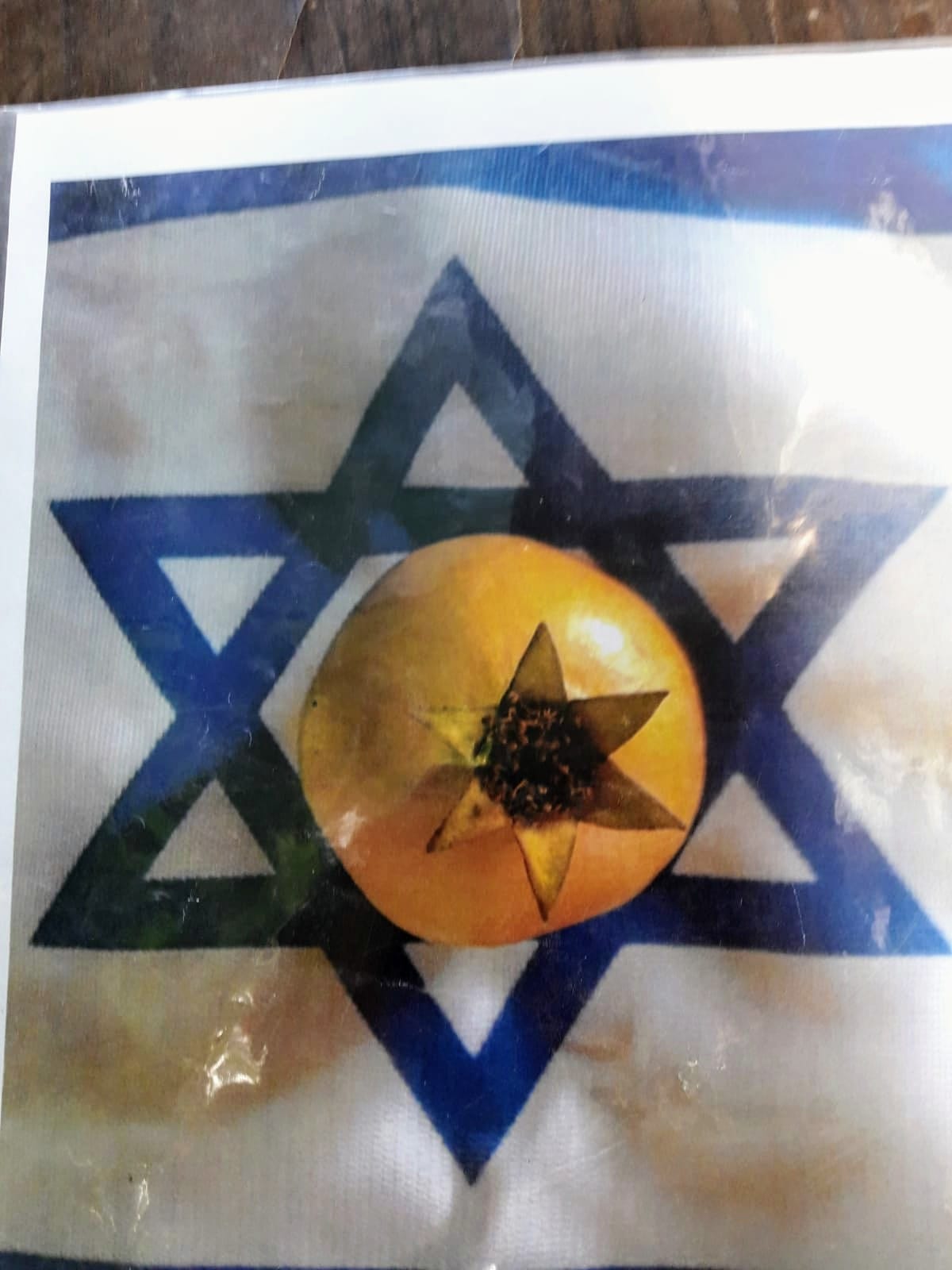
"After 50 years, we decided to surprise them with a big wedding party. We searched for nostalgic items from that era with our grandchildren, discovering interesting pieces – records, documents, photos, tools, collections, and more, spanning from the Palmach era to today. But what was truly fascinating was people's reaction to our collection efforts; they came forward eagerly, offering more and more artifacts. At some point, we realized we had amassed vast quantities of captivating items, and understood it was truly a treasure. That's how we decided to turn it into a museum."
The couple chose to establish the museum in their backyard, which itself holds a historical story: "Moshav Beit Meir was founded in the month of Nisan, 1950, with Jacob's parents among the pioneers. My parents moved to Beit Meir from Australia two months before the Yom Kippur War. We, as 'the neighbors' children', married in the moshav and chose to build our home here, continuing the legacy. When clearing the land for construction, an ancient olive press from the Second Temple period was discovered. Today, visitors to the museum can see the olive press, along with an armored vehicle from the 1948 independence war and a variety of ancient, nostalgic, and fascinating items, each hiding a full story."
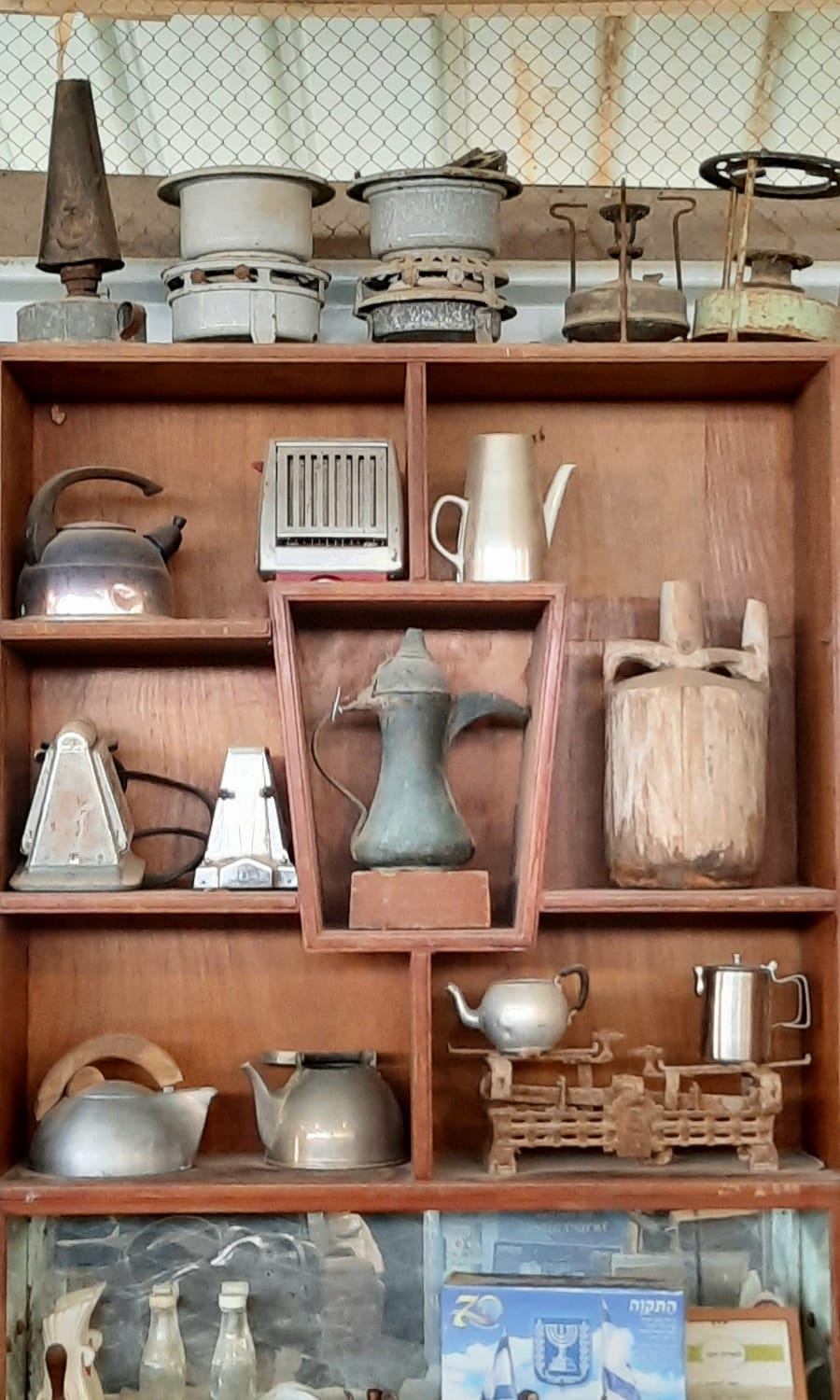
A Collection of Memories
The collection spans every imaginable category. "Many of the artifacts were found outside; people had discarded them," Debbie explains. "People threw them away because they believed an old camera or a wooden ice cream maker was useless, unlike today's plastic or metal counterparts. To us, these are treasures. Our museum also houses various millstones, some even from Nahal Gerar from the patriarchal period. We invite visitors to try and understand how flour was really made in the past."
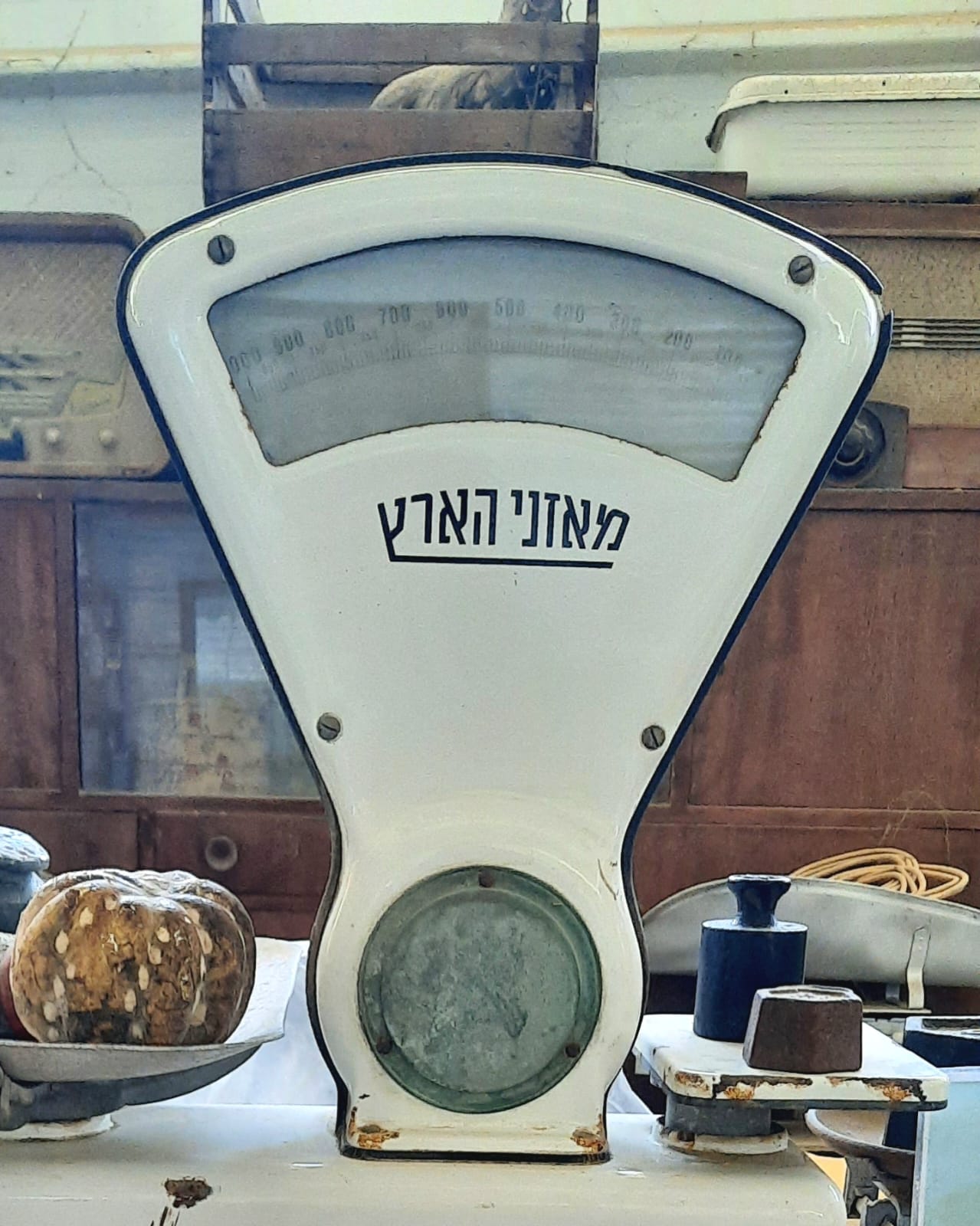
Most items in the Kelley collection are from the last 150 years, yet older artifacts exist as well. "We have fossils, mostly found locally, tools for planting and plowing from 2,000 years ago, and even a very ancient oil lamp my father-in-law found. It serves as evidence of Jewish settlement here. There are numerous ancient coins from various periods, including some from the Hasmonean era that were also found near our home."
Visitors will find books over 120 years old, encapsulating past narratives. "One book, 'Bundle of Letters', was published in 1940 and compiles newsletters from The United Kibbutz Movement. Among them are letters from a kindergarten teacher documenting children's conversations during games in the sandbox or free play. It's astounding to read about small 4 or 5-year-olds discussing... Hitler. It's chilling. No wonder Ben Gurion, Napoleon, and others stressed knowing your past for a clear future, like Yigal Allon who said, 'A nation that does not know its past, its future is shrouded in fog'. We strive to revive the past to appreciate the present for a hopeful future. Don't worry, it's not all serious. We share laughs too, tailoring content to visitors."
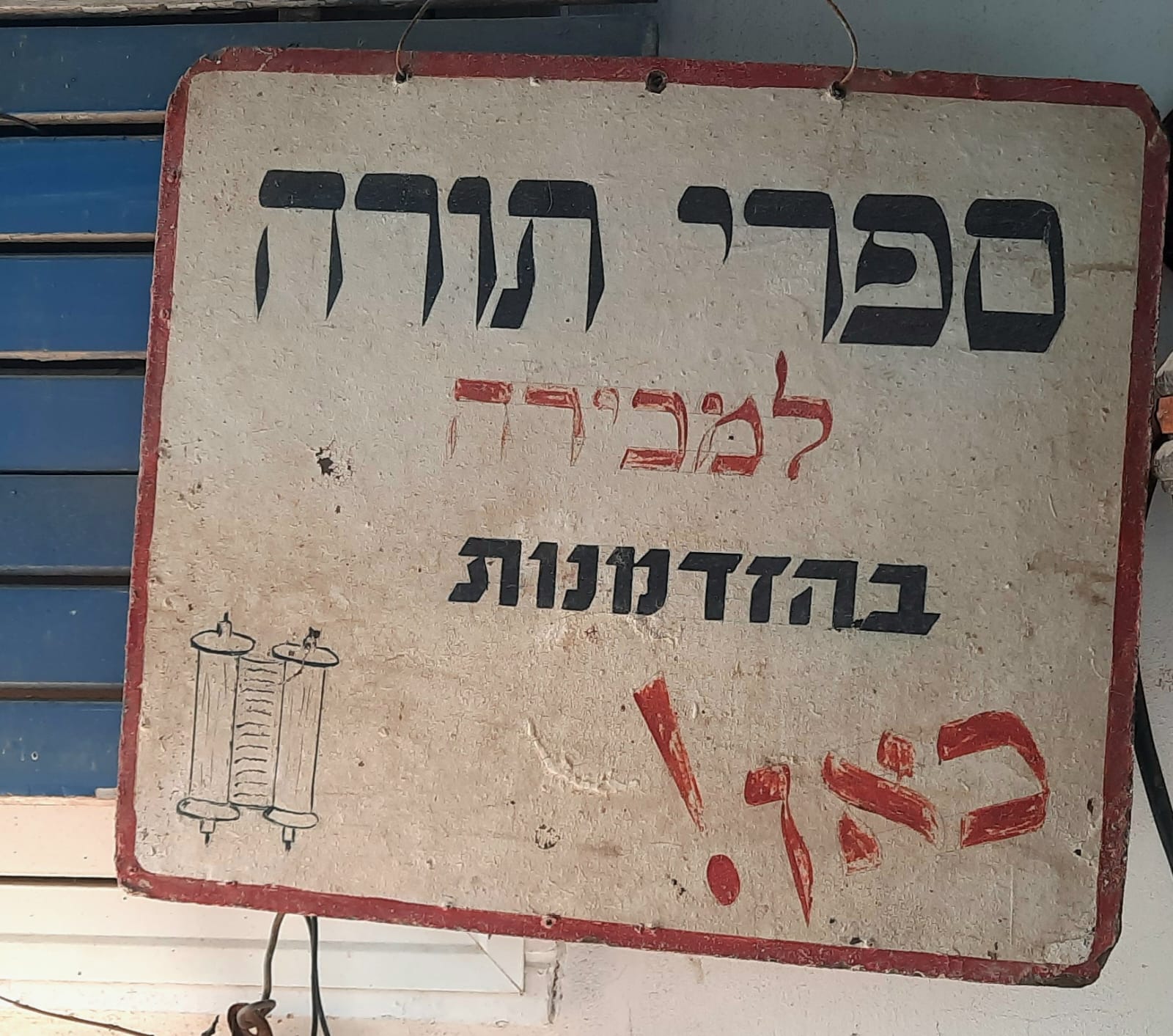
And who visits the museum?
"Often groups of retirees visit. They truly delight in seeing the washer, washboard, ironing board, and of course, a variety of wonder pots and trays. It whisks them back to their childhoods. They recall their fifth-grade teacher, schoolbooks, kitchen utensils, even storybooks. There was someone who found a book she remembered from childhood; she hugged it, smelled it, tears streaming down her face."
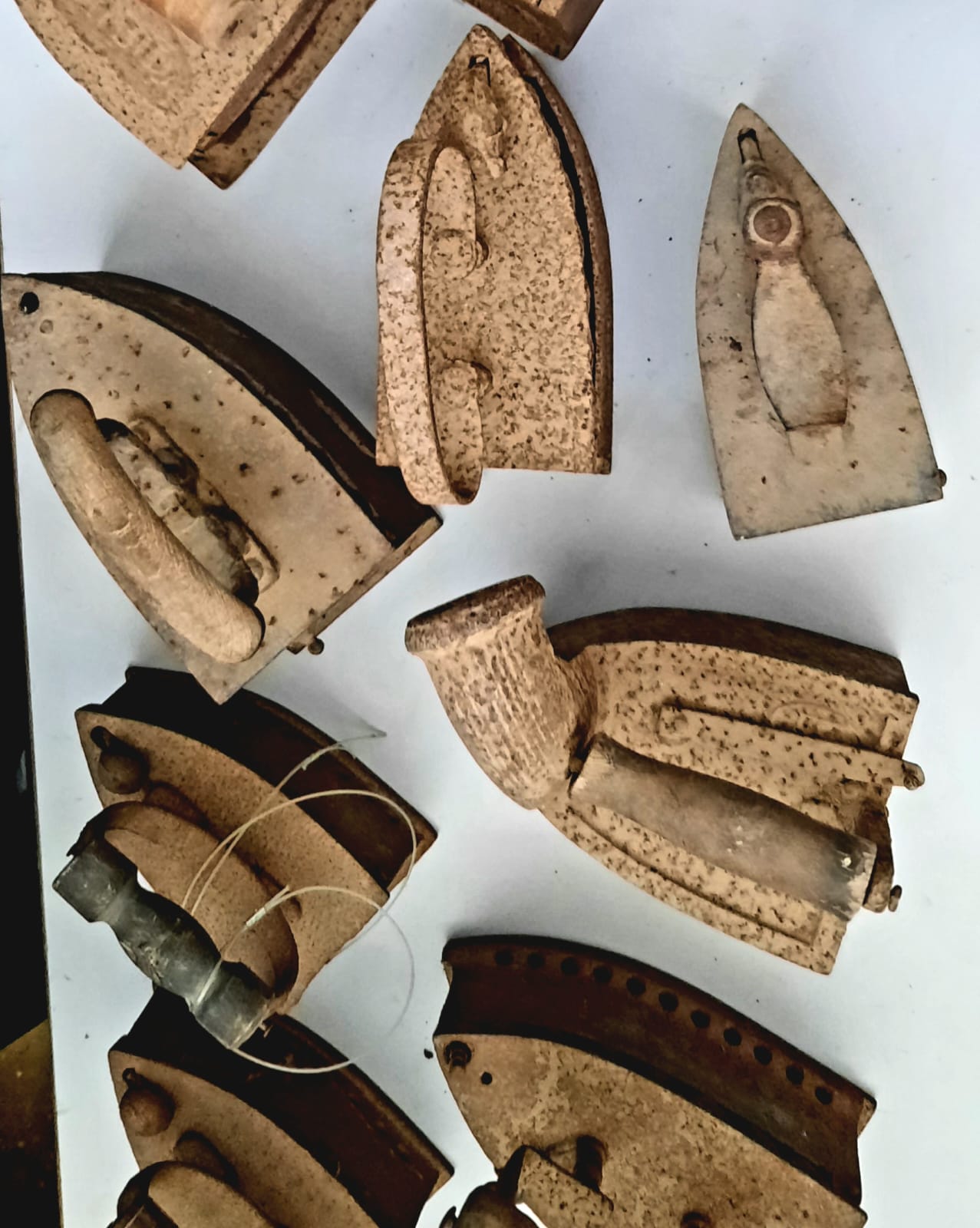
"Many parents also bring their children to show them how life looked in the past and to tangibly illustrate the artifacts to them. Typically, it’s the middle generation remembering phonographs, rotary phones, and punch cards. Some visitors come for intergenerational tours. Once, a man called asking to visit with six children, to which we gladly agreed – our museum suits ages five to 120. He arrived, and to our surprise, revealed that his 'children' ranged in age from 65 to 75, with the proud father strutting ahead like a peacock, explaining various items and reminiscing together. They encountered our 'Balance Scales' and he suddenly turned pale. His sons gathered around asking what happened. He explained: 'My father was the first to import these scales into the country.' The sons fell silent, eyes wide with curiosity, then came the most touching question of all: 'Dad, what else can you tell us?' And tell them he did, abundantly. Turned out, he was a Jew who achieved much in his lifetime, founding many settlements and yeshivas but hadn't spoken about them. This moment was transformative for him, leading him to share his stories."
And how do you have room for all the items?
"Honestly, space is limited, and the biggest issue is our difficulty in parting with items. Yet, I've recently begun to filter – some artifacts are passed on, some are sold, and some we simply can't part from, honoring them with a place in our collection."
